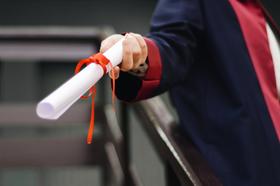Whether high school students are seeking extra help for coursework or for students who are looking for ways to become more involved in their school or community, tutoring programs are widely available for high school students in public schools.
Benefits of Students Becoming a Tutor
Programs to Foster Positive Tutoring Experiences
For students interested in volunteering to serve as a tutor, such academic involvement can prove to be beneficial both socially and academically. As the Corporation for National and Community Service (CNCS) explains, “Cross-age tutoring can have benefits for both the tutee and the tutor. Using high school students to tutor students in elementary school has the potential to be a win-win situation.” While there are opportunities for high school students to assist their peers, many tutoring programs focus solely on utilizing high school students as mentors for younger children.
As the CNCS further explores, one local Seattle school district paired high school and elementary students in academic tutoring programs, which resulted in beneficial learning opportunities for both age groups. As CNCS explains, the local high school and elementary school “partnered to create a service-learning program where high-school students enrolled in a home/family life class also tutored elementary students during the week. The high-school tutors worked in teams and were coached by an on-site reading specialist.” Three to five days a week, tutors would meet with their assigned elementary students, focusing on the lowest-scoring and achieving students so as to provide strong support early on.
As CNCS further reveals, the young students were not the only individuals who valued their one-on-one time with a mentor tutor: “Many gains in their own self-esteem were noted by the high school tutors. Some of the high-school students did not perceive themselves as ‘academically oriented’ before volunteering as tutors. As one high school student further revealed, “Being a tutor helped me talk one-on-one with students and in larger groups […] It has really made me a leader. I have improved my social, communication, and public speaking skills. This program is great and will definitely benefit and support my future dreams and ambitions.”
This video explains how to become a tutor.
Additional Tutoring Opportunities
In addition to Seattle’s cross-grade tutoring program, The Autism American Statesman reports similar beneficial programs, as explored in their article, “Tutoring Incentives Offered.” In an attempt to increase the support for autistic students in local Austin schools, some high schools began paying students cash as a monetary benefit for tutoring and academic outreach. As such, high school students would be paid six dollars per hour as they worked with students of various ages. This program, titled the Tutoring Incentive Program, is the community’s attempt at building a partnership among school districts and individual communities, as teachers hand-picked tutors to ensure quality instruction and support.
While the funds were privately allocated through various sources, the monetary incentive is not a new motivational tool in schools: “Though paying students to be tutored is new, this will not be the first time that students or teachers in Austin have participated in a program that pays them to learn. Several schools in recent years have paid students based on their performance on Advance Placement exams.” As a result of such programs, high school students are able to not only become involved in the community but are also able to earn wages through paid part-time work. Furthermore, as one community member asserts, “This is an example of a great citizen saying, 'We can do more, and we can do it with the school district and the community.’”
High School Students in Need of Tutoring Support
Public School Programs for Assistance
For teens needing public school support, many unique programs are available at individual schools and communities. On a larger and more universal scale, however, popular student organizations, such as The National Honors Society (NHS), often require a specific number of service hours for members, and many choose to serve the community by tutoring their peers and classmates.
As NHS asserts, “The National Honor Society and National Junior Honor Society are the nation's premier organizations established to recognize outstanding high school and middle-level students. More than just an honor roll, NHS and NJHS serve to honor those students who have demonstrated excellence in the areas of Scholarship, Leadership, Service, and Character.” To foster these qualities of society, students across the country volunteer before and after school hours to help assist students. Parents and teens can learn about these tutoring opportunities and hours by visiting their school’s NHS teacher advisor or speaking with the academic counselors for further assistance.
This video outlines the ins and outs of peer tutoring.
Private Support for High School Students
While public school tutoring venues are cost-free for parents, private institutions can also further assist students in need of extra help. For example, Sylvan Learning Center is one nationally recognized private tutoring company that only hires certified high school teachers as their tutors. Oftentimes, these tutors are local high school teachers who are fully informed on students’ curriculum, pacing guides, and courses. While private programs, such as Sylvan, can be quite costly, they are widely available for students and parents seeking added academic support.
Questions? Contact us on Facebook. @publicschoolreview














